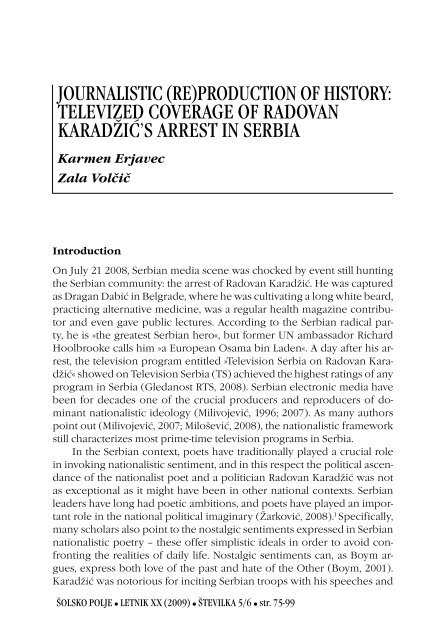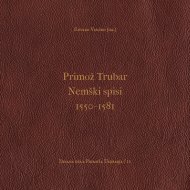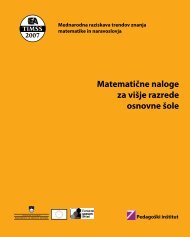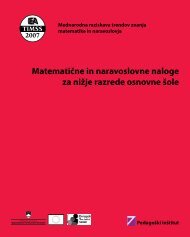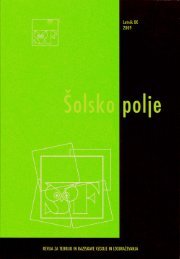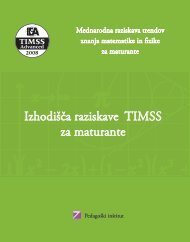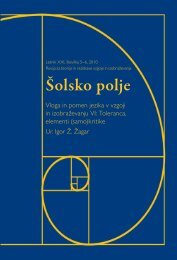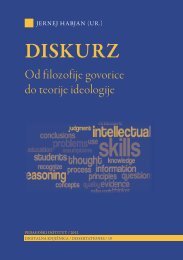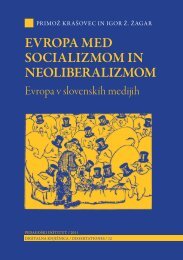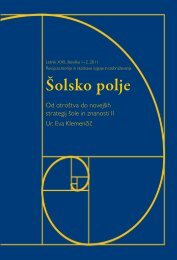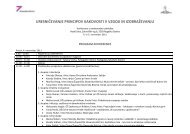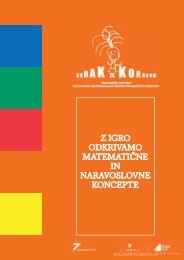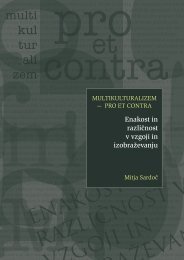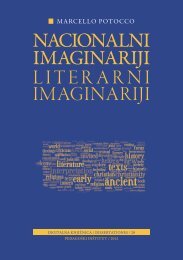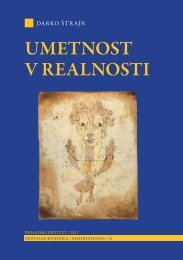Šolsko polje, letnik XX, številka 5-6, 2009: Vloga ... - Pedagoški inštitut
Šolsko polje, letnik XX, številka 5-6, 2009: Vloga ... - Pedagoški inštitut
Šolsko polje, letnik XX, številka 5-6, 2009: Vloga ... - Pedagoški inštitut
You also want an ePaper? Increase the reach of your titles
YUMPU automatically turns print PDFs into web optimized ePapers that Google loves.
University of Queensland, Centre for Critical and Cultural Studies, AustraliJOURNALISTIC (RE)PRODUCTION OF HISTORY:TELEVIZED COVERAGE OF RADOVANKARADŽIĆ’S ARREST IN SERBIAKarmen ErjavecZala VolčičIntroductionOn July 21 2008, Serbian media scene was chocked by event still huntingthe Serbian community: the arrest of Radovan Karadžić. He was capturedas Dragan Dabić in Belgrade, where he was cultivating a long white beard,practicing alternative medicine, was a regular health magazine contributorand even gave public lectures. According to the Serbian radical party,he is »the greatest Serbian hero«, but former UN ambassador RichardHoolbrooke calls him »a European Osama bin Laden«. A day after his arrest,the television program entitled »Television Serbia on Radovan Karadžić«showed on Television Serbia (TS) achieved the highest ratings of anyprogram in Serbia (Gledanost RTS, 2008). Serbian electronic media havebeen for decades one of the crucial producers and reproducers of dominantnationalistic ideology (Milivojević, 1996; 2007). As many authorspoint out (Milivojević, 2007; Milošević, 2008), the nationalistic frameworkstill characterizes most prime-time television programs in Serbia.In the Serbian context, poets have traditionally played a crucial rolein invoking nationalistic sentiment, and in this respect the political ascendanceof the nationalist poet and a politician Radovan Karadžić was notas exceptional as it might have been in other national contexts. Serbianleaders have long had poetic ambitions, and poets have played an importantrole in the national political imaginary (Žarković, 2008). 1 Specifically,many scholars also point to the nostalgic sentiments expressed in Serbiannationalistic poetry – these offer simplistic ideals in order to avoid confrontingthe realities of daily life. Nostalgic sentiments can, as Boym argues,express both love of the past and hate of the Other (Boym, 2001).Karadžić was notorious for inciting Serbian troops with his speeches andŠOLSKO POLJE LETNIK <strong>XX</strong> (<strong>2009</strong>) ŠTEVILKA 5/6 str. 75-99


